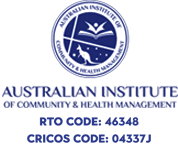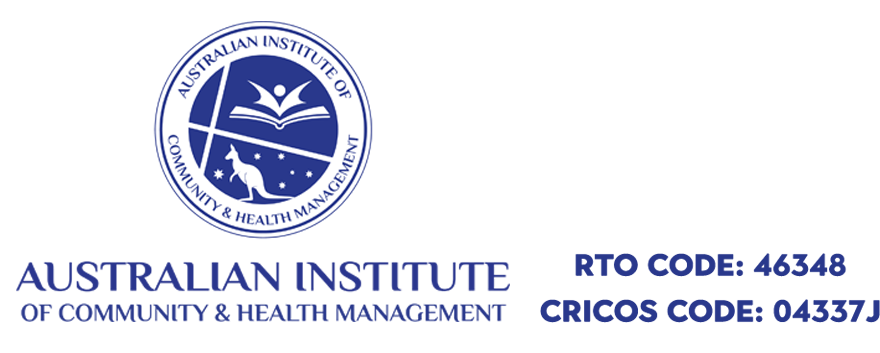Mentoring Policies and Procedures
Introduction
Mentoring is a structured, formal relationship in which a more experienced person (the mentor) helps a less experienced person (the mentee) grow personally and professionally by offering advice, encouragement, and role modelling.
At AICHM, the Mentoring Program is a voluntary, inclusive, diverse community of faculty, students and alumni. Participants form connections to enhance employability skills in an environment free from discrimination, harassment, sexual harassment, and bullying. Mentoring aims to build confidence and relationships, develop resilience and character, and raise aspirations rather than develop specific academic skills or knowledge.
AICHM students must always follow the behavioural standards in the Institute’s Student Conduct Policy. All the institute faculty and associates must conduct themselves consistent with the Institute’s Appropriate Workplace behaviour policy. Any breaches of conduct will be dealt with according to policy guidelines.
Goals and Objectives of the Mentoring Program
Mentoring programs at the AICHM connect students, alumni, and faculty, aiming to prepare students for professional contribution, leadership, and active global citizenship during and after their studies. Through mentoring, students can access critical professional guidance and support in the early stages of career planning and professional life.
Participation in the Programme
The authorities at AICHM have the right to terminate or revoke the invitation to the mentor or mentee at their sole discretion. Mentors and students must complete training before being matched.
Matching Mentors and Mentees
Using data from registration forms, a confidential method will be used to match students and mentor pairs in general. To guarantee a win-win situation, every attempt is made to match the mentor’s interests as closely as possible with those of the pupils. However, a certain amount of adaptability and comprehension on the part of both mentor and mentee may be necessary, along with a readiness to seize the chance if you are paired with someone with different interests.
Meetings of Mentors and mentees.
Students must initiate contact with their mentors. Mentors and mentees should meet at least three times during the mentoring period, either face-to-face, online, through work shadowing, or at industry events. If students have trouble reaching their mentor after two tries, they should contact the Mentoring Program Coordinator.
Teaching and Learning
Mentoring programs at AICHM do not affect academic grades. They aim to help mentees transition from student to professional life. For Mentees, the mentoring process provides Increased confidence, improved skills, a better understanding of their career path, and access to valuable resources and support. For mentors, this programme offers opportunities to share knowledge and experience, improve their skills, and contribute to the development of others.
Ending the relationship – No fault clause
Incompatibility is a natural aspect of life and should not be attributed to any individual. Should the mentor or mentee encounter challenges within their mentoring relationship, contacting the Program Coordinator promptly is imperative. Addressing issues objectively at an early stage may resolve some problems. However, if a resolution is unattainable, the Mentoring Agreement includes a ‘No Fault’ clause, allowing either party to terminate the mentoring relationship without assigning blame. In such instances, participants must first discuss the matter with the Program Coordinator before informing their mentoring match of their decision to conclude the relationship.
Privacy and Confidentiality.
All contact details of the mentor and mentee will be maintained confidentially, and access to personal data is regulated per the Institute’s privacy policy, which can be accessed here.
The information you provide through LMS, our third-party provider, is stored on their Australian-based server. Their Privacy Policy provides more information about how LMS uses and stores your data.
Insurance Cover
Public Liability insurance coverage is provided to all the enrolled students involved in the Institute’s related activities. This extends to work shadowing with their mentor (though it is unpaid “work “experience). Please get in touch with the Mentoring Program Coordinator if you need clarification.
Occupational Health and Safety
Mentors should know all relevant occupational health and safety requirements when the student visits their workplace as part of this mentoring program. This may require the student to be inducted into the occupational health and safety orientation process of the work environment as relevant, and the mentor will need to ensure that the student’s health and safety are not at risk while at the workplace.
The Institute expects that the workplace will have the requisite public liability insurance cover for accidents that may occur there. Visiting participants should comply with relevant occupational health and safety requirements while at the workplace as notified by the hosting participant. Please visit the Work Safe Victoria website for general information about occupational health and safety. However, this would not apply if you met in a public place.
Duty of Care and Ethical Compliance.
Students and mentors must always agree to behave professionally, lawfully, ethically, and responsibly. Anyone who experiences any uncertainty or discomfort with the mentoring relationship should contact the Mentoring Program Coordinator immediately. We will then contact you to discuss your concerns.
Code of Conduct.
Participants of the AICHM Mentoring Program are expected to adhere to the following code of conduct:
- – Always observe privacy and confidentiality, including all contact details.
- – Maintain higher professional standards of behaviour and safety.
- – Treat others with courtesy, be respectful and non-judgmental.
- – Fulfil agreed commitments.
- – Assist with evaluation and feedback.
- – Contact the Mentoring Program Coordinator with any concerns or difficulties.
Grievance Procedure
In the first instance, participants should discuss the issue with the Mentoring Program Coordinator. They should discuss the complaint with the Director of Compliance if they do not feel the matter is resolved.
Complaints and grievances will be handled according to AICHM procedures outlined in the Student Complaints and Grievance Policy.
Evaluation
Feedback is appreciated throughout the program. Formal evaluation occurs at the end of each intake.
Compliance with relevant Australian Legislation
Participants in this program must comply with Australian laws prohibiting discrimination, harassment, sexual harassment, or bullying of any individual or group.
Australian Human Rights and Equal Opportunity Commission Act 1986
Disability Discrimination Act 1992
Racial Discrimination Act 1975
If you want further information about these policies and procedures, don’t hesitate to contact the Program Coordinator at mentoring@aichm.edu.au.
Mentoring Program Coordinator
Student Code of Conduct Policy.
Appropriate Workplace Behaviour Policy.
Student Complaints and Grievances Policy.
LMS privacy policy
AICHM Privacy Policy
Revised on 14/04/2025
Next revision: 14/04/2027
By the Director of Compliance

